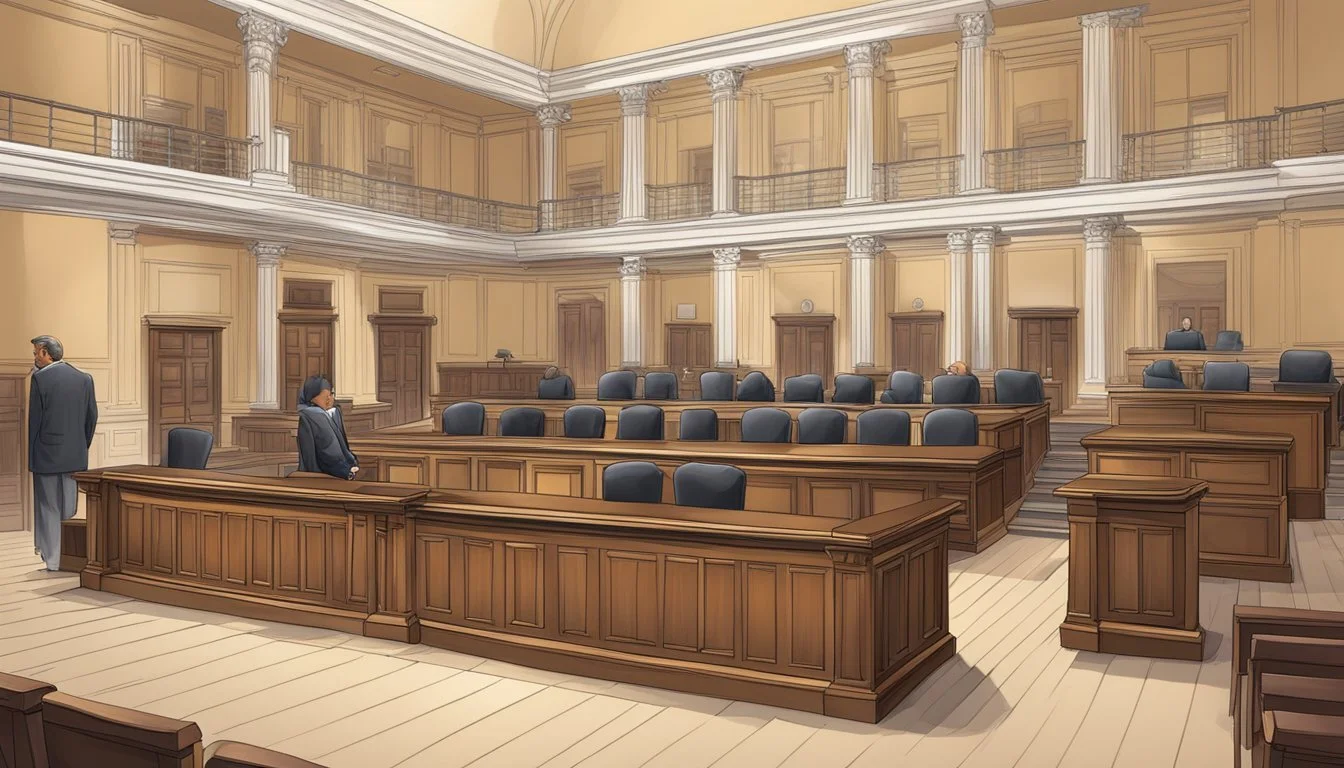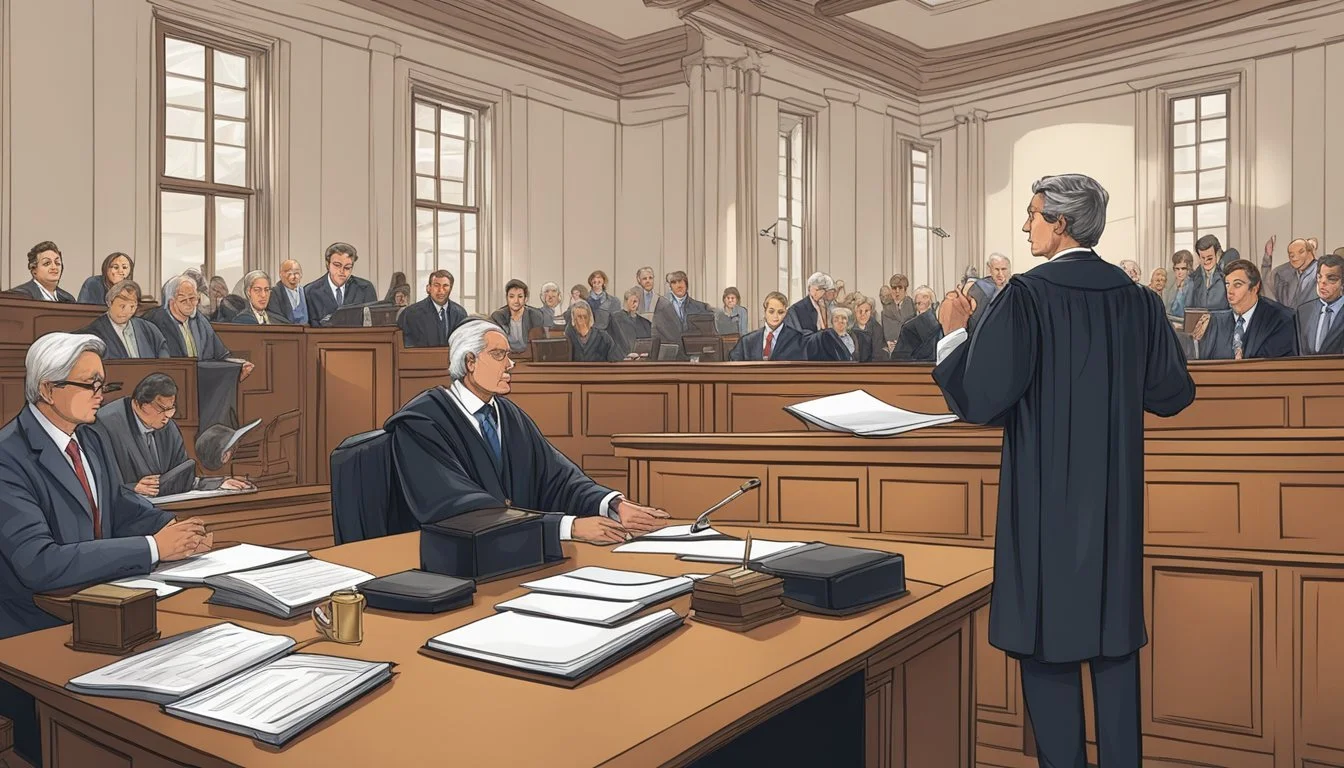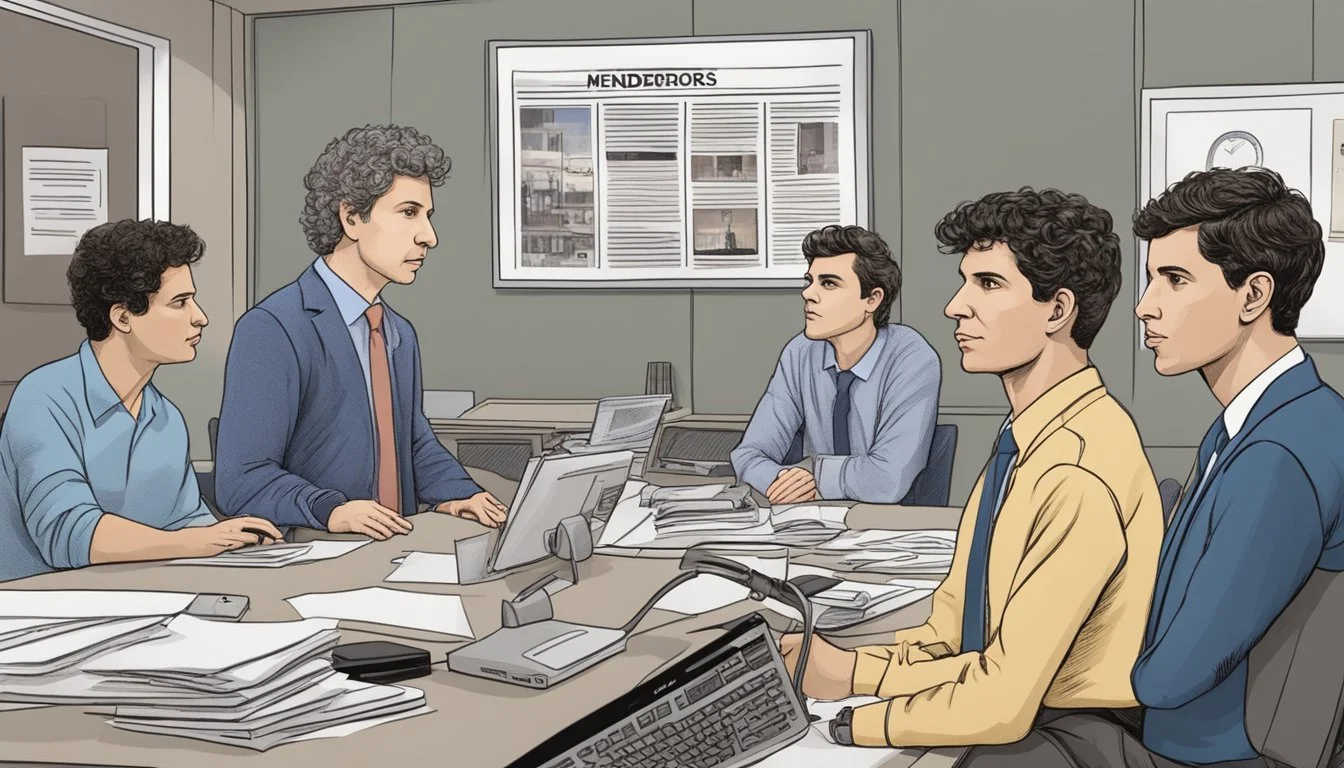Media Ethics in Crime Reporting: Lessons from the Menendez Case
Balancing Sensationalism and Justice
The Menendez brothers case from the early 1990s remains a touchstone for discussions about media ethics in crime reporting. Lyle and Erik Menendez, convicted of murdering their parents in Beverly Hills, became the focus of intense media scrutiny that shaped public perceptions of the case and the criminal justice system.
The media's portrayal of the Menendez brothers' trial highlighted the power of sensationalism to sway public opinion and potentially influence legal proceedings. News coverage often emphasized dramatic elements and shocking details, sometimes at the expense of balanced reporting. This approach captivated audiences but raised questions about responsible journalism and the media's role in high-profile criminal cases.
The case's recent resurgence on social media platforms has reignited debates about how crime stories are presented to the public. As new generations discover and reexamine the Menendez case, it offers an opportunity to reflect on the evolution of true crime coverage and the ethical responsibilities of media in reporting on criminal justice issues.
Background of the Menendez Case
The Menendez case shocked Beverly Hills and captivated the nation in 1989. It involved the brutal murders of a wealthy couple by their own sons in their mansion.
The Menendez Family
Jose Menendez was a successful entertainment executive. His wife Kitty was a homemaker and socialite. They lived in an opulent Beverly Hills mansion with their sons Lyle and Erik. The family projected an image of wealth and success to the outside world.
Jose was known for his strict parenting and high expectations for his sons. Kitty struggled with depression and substance abuse issues. The brothers later claimed they endured years of physical and sexual abuse from their father.
Timeline of the Crime and Arrest
On August 20, 1989, Jose and Kitty Menendez were shot multiple times with shotguns in their living room. Lyle and Erik initially claimed they were out at a movie.
The brothers went on a lavish spending spree in the months after the murders. This raised suspicions among investigators. In March 1990, police arrested Lyle Menendez. Erik turned himself in days later.
Both brothers were charged with first-degree murder. The prosecution alleged the motive was to inherit their parents' $14 million estate. The defense claimed the killings were in response to years of abuse.
The Trial and the Justice System
The Menendez brothers' trial captivated the nation, exposing complex legal strategies and the intricacies of the justice system. It highlighted issues of abuse, self-defense, and the challenges of high-profile cases.
Legal Strategies and Defenses
The defense team for Erik and Lyle Menendez argued that years of sexual abuse by their father led to the killings. They claimed self-defense, asserting the brothers feared for their lives. Prosecutors countered this narrative, portraying the act as a premeditated murder motivated by greed.
The trial became a media spectacle, broadcast live on Court TV. This unprecedented coverage influenced public opinion and raised questions about fair trials in the age of mass media.
Initially, separate juries for each brother resulted in mistrials. The retrial, with a single jury, led to convictions for both siblings.
Life Prison Sentence and Appeals
Erik and Lyle Menendez received life sentences without the possibility of parole. They were sent to separate facilities within the California Department of Corrections.
Over the years, the brothers have filed multiple appeals. Their legal team has presented new evidence supporting their abuse claims. These efforts have garnered attention from criminal justice advocates.
Recent developments include a request to Los Angeles County District Attorney George Gascón to review the case. Supporters argue that modern understanding of trauma and abuse warrants a reevaluation of the original verdict.
The brothers remain in prison, their case continuing to spark debates about justice, rehabilitation, and the long-term impacts of childhood trauma.
Media Impact on Crime Reporting
Media coverage of criminal cases shapes public perceptions and can influence legal proceedings. The Menendez brothers' trial highlighted the complex relationship between journalism, entertainment, and justice.
Ethical Considerations in Crime Journalism
Reporters face difficult choices when covering high-profile crimes. Balancing public interest with privacy rights poses challenges. Media outlets must weigh the need for transparency against potential harm to victims or suspects.
Sensationalism can distort facts and fuel misconceptions. Responsible journalism requires verifying information and providing context. Some news organizations have adopted guidelines to ensure fair, accurate crime reporting.
Ethical concerns also arise around the timing of coverage. Premature reporting may compromise investigations or prejudice potential jurors. Media scrutiny can put pressure on law enforcement and the justice system.
Influence of Televised Trials
Court TV's gavel-to-gavel coverage of the Menendez trial marked a shift in legal proceedings. Cameras in courtrooms brought criminal justice into living rooms across America.
The O.J. Simpson trial further demonstrated television's power to captivate audiences. ABC News and other networks devoted extensive airtime to the case. This saturation coverage turned legal analysts into celebrities.
Televised trials can educate the public about the legal system. They also risk turning serious proceedings into entertainment. Critics argue that cameras may influence witness testimony or jury decisions.
The media spotlight can sway public opinion before a verdict is reached. This phenomenon raises questions about the impact on fair trials and impartial juries.
Public Perception and Pop Culture
The Menendez case captivated public attention and permeated popular culture, shaping societal views on wealth, family dynamics, and justice. Media coverage and entertainment portrayals played significant roles in molding public opinion and cementing the case's place in cultural memory.
Influence of Media on Public Opinion
Media coverage of the Menendez case significantly impacted public perception. News outlets focused on sensational aspects, like the brothers' lavish spending sprees after their parents' deaths. This framing influenced how viewers interpreted the defendants' characters and motives.
Kim Kardashian's involvement in a 2022 podcast about the case reignited public interest. Her platform brought renewed attention to the complexities of the trial and the brothers' claims of abuse.
A Netflix documentary series in 2023 presented a comprehensive look at the case, offering new perspectives and reigniting debates about the verdict's fairness.
Portrayal in Television and Film
The Menendez case inspired numerous fictional adaptations and dramatizations. Ryan Murphy's "American Crime Story" series dedicated a season to the brothers, starring high-profile actors and garnering critical acclaim.
John Malkovich portrayed defense attorney Leslie Abramson in a TV movie, highlighting the legal strategies employed during the trial.
"Saturday Night Live" featured multiple sketches about the case, with Rob Schneider's impersonations of Lyle Menendez becoming particularly memorable.
"The Jinx," while not directly about the Menendez brothers, drew parallels to their case in its exploration of wealthy families and crime.
These portrayals in popular media continued to shape public understanding of the case long after the trial concluded.
Modern Reflections on the Menendez Case
The Menendez case continues to spark debate and reassessment decades after the 1989 killings. New evidence and shifting societal attitudes have prompted a fresh examination of the brothers' convictions and sentences.
Evolving Views on the 'Abuse Excuse'
The concept of the "abuse excuse" in criminal cases has undergone significant scrutiny since the Menendez trial. Legal experts and mental health professionals now recognize the profound impact of childhood trauma on behavior and decision-making.
This shift has led to a more nuanced understanding of how abuse affects victims long-term. Some argue that the brothers' claims of sexual abuse by their father deserve greater consideration in light of current psychological research.
The case has become a focal point for discussions about the intersection of abuse, culpability, and justice in the legal system.
Cultural Shifts and Resentencing
Social media has played a crucial role in reviving interest in the Menendez case. Platforms like TikTok have introduced a new generation to the brothers' story, sparking calls for reevaluation.
Kim Kardashian, leveraging her status as a criminal justice advocate, has drawn attention to the case. Her involvement has amplified voices arguing for resentencing based on abuse evidence.
Los Angeles District Attorney George Gascón announced a review of new evidence in 2023. This development reflects changing attitudes towards considering trauma in criminal proceedings.
A petition for the brothers' release garnered over 100,000 signatures, indicating significant public support for reexamining their sentences.
Ethics in Crime Reporting
Crime reporting demands a delicate balance between public interest and ethical considerations. Journalists face complex challenges in covering sensitive cases like the Menendez brothers.
Balancing Sensationalism with Sensitivity
Media coverage of high-profile crimes often walks a fine line. Reporters must provide accurate information while avoiding sensationalism. The Menendez case drew intense public fascination, but ethical reporting required restraint.
Journalists have a responsibility to respect victims and their families. This means carefully weighing which details to include and how to present them. Graphic descriptions or speculative theories can cause additional harm.
At the same time, reporters must not shy away from difficult truths. Thorough investigation and factual reporting serve an important public interest. The key is finding the right approach to convey information responsibly.
The Role of Reporters in Shaping Narratives
Journalists play a crucial part in how the public perceives criminal cases. Their choices in framing and emphasis can significantly impact public opinion.
In the Menendez case, reporters faced tough decisions about how to portray complex family dynamics and abuse allegations. Responsible coverage required presenting multiple perspectives and avoiding oversimplification.
The Los Angeles County District Attorney's office also factored into the narrative. Reporters needed to critically examine official statements while maintaining objectivity. Balancing prosecution and defense viewpoints helped ensure fair coverage.
Ethical reporting involves acknowledging the limitations of available information. Journalists must be transparent about uncertainties and avoid jumping to conclusions. This approach helps maintain public trust in media coverage of sensitive cases.




